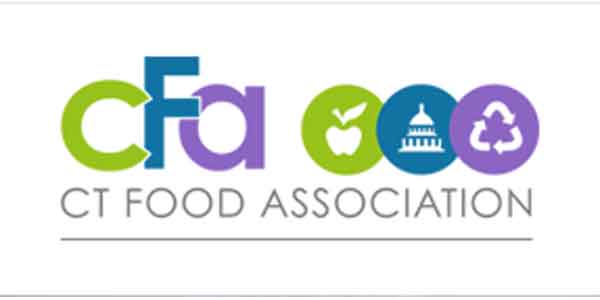Below is a recap of upcoming state laws and regulations passed last session that impact retailers: minimum wage and tax rates on food and e-cigarettes.
Minimum Wage:
$11.00 per hour on October 1, 2019; $12.00 per hour on September 1, 2020; $13.00 per hour on August 1, 2021; $14.00 per hour on July 1, 2022; and $15.00 per hour on October 15, 2023.
Meals and Beverages:
The tax rate on sales of meals and beverages increases from 6.35% to 7.35%. The increased rate applies to sales of (1) meals sold by eating establishments, caterers, or grocery stores and (2) liquors, soft drinks, sodas, and beverages ordinarily dispensed at, or in connection with, bars and soda fountains (PA 19-117, §§ 323-324, effective October 1, 2019, and applicable to sales occurring on or after that date).
Minimum age to purchase tobacco products and e-cigarettes in the state from 18 to 21:
The bill imposes a $300 fine on a retailer who sells a tobacco product to anyone under age 21, increases, from $50 to $200, the annual license fee for cigarette dealers; and increases from $400 to $800 the annual registration fee for e-cigarette dealers. Effective October 1, 2019
E-Cigarette Tax:
The budget act imposes a tax on sales of electronic cigarette (e-cigarette) products by e-cigarette wholesalers at a rate of (1) 40 cents per milliliter of e-cigarette liquid, for any e-cigarette product that is pre-filled, manufacturer-sealed, and not intended to be refillable and (2) 10% of the 2019-R-0140 July 17, 2019 Page 14 of 20 wholesale price for all other e-cigarette products whether or not sold at wholesale, or if not sold, at the same rate upon use by the wholesaler (PA 19-117, § 351, effective October 1, 2019, and applicable to sales occurring on or after that date).
Sales Tax Credits for Uncollectible Amounts:
By law, retailers can claim a credit for sales tax they paid on accounts later deemed worthless; they must generally do so within three years after they remitted the tax to DRS. If a retailer who claimed such a credit subsequently collects all or some portion of that account, prior law required the retailer to include the amount it collected in its next regular sales tax payment. A new law (1)provides that the retailer must only include the amount of sales tax for which it claimed the credit and (2) requires that any payments made on the account be applied first to the sales tax (PA 19-186, § 5, effective upon passage and applicable to credit claims received on or after such date).
State Tax Refunds:
Under a new law, businesses must, as a condition of receiving a tax refund for a tax they collected from a customer, establish to the DRS commissioner’s satisfaction that the tax amount for which they are claiming a refund was or will be repaid to the customer.
Digital Goods and Certain Electronically Delivered Software:
Beginning October 1, 2019, the sales and use tax rate on digital goods and certain electronically delivered software increases from 1% to 6.35%. Prior law considered both as computer and data processing services subject to the 1% rate for such services. As under existing law, canned or prewritten computer software delivered by other means is considered tangible personal property and thus subject to the 6.35% rate.
Student Loan Payment Business Tax Credit:
Under a new law, beginning with the January 1, 2022, income year, businesses can claim a credit against the corporation business or insurance premium tax for making payments towards an employee’s student loans. The credit equals 50% of the amount an employer pays on an employee’s outstanding principal balance on an eligible loan but cannot exceed $2,625 per employee. Eligible loans are those issued by the Connecticut Higher Education Supplemental Loan Authority (CHESLA) to refinance student loans. Generally, qualified employees are Connecticut residents who earned their first bachelor’s degree within the last five years and are working at least 35 hours per week at a corporation, insurer, or health care center that is licensed in Connecticut and subject to the applicable tax (PA 19-86, effective January 1, 2022, and applicable to income years commencing on or after that date).
Penalties for Payments by Electronic Funds Transfer:
A new law replaces the graduated penalties that apply to late tax payments paid by electronic funds transfer with the existing penalties that apply to late payments for the respective tax being paid. Under prior law, the penalty was 2% if the payment was less than six days late, 5% if it was six to 15 days late, and 10% if it was more than 15 days late. For periods ending on or after December 31, 2019, the new law instead requires any late tax payments paid by electronic funds transfer to be subject to the interest and penalty provisions that apply to the specific tax being paid (PA 19-186, § 29, effective upon passage).
Expanded Sales Tax Nexus:
A new law lowers the threshold for the sales tax economic nexus law and broadens its application, thus expanding the number of out-of-state retailers making retail sales in the state that must collect and remit Connecticut sales tax. Under prior law, out-of-state retailers that regularly and systematically solicited sales of tangible personal property in Connecticut had to collect and remit sales tax if (1) they made at least 200 Connecticut sales during the preceding 12-month period (ending September 30) and (2) their gross receipts were $250,000 or more during that period. The new law (1) lowers the threshold to 200 transactions and $100,000 in gross receipts during the 12-month period; (2) expands its coverage to include out-of-state retailers making retail sales of services, rather than just tangible personal property; and (3) eliminates the condition that such retailers be regularly or systematically soliciting sales in Connecticut. The new law similarly lowers, from $250,000 to $100,000, the sales threshold over which retailers selling tangible personal property or services through certain agreements with people located in Connecticut must collect and remit sales tax on their in-state taxable sales (PA 19-117, §§ 327 & 328, effective July 1, 2019, and applicable to sales occurring on or after that date).
Estate Tax on Specified Business Property:
A new law establishes conditions under which real and tangible personal property owned by a pass-through entity (i.e., partnership, S corporation, or a single member limited liability company that is disregarded for federal income tax purposes) is treated as personally owned by a nonresident decedent for estate tax purposes (PA 19-186, § 31, effective upon passage).
Plastic Bags:
The legislature passed a 10-cent fee on single-use plastic bags that stores provide to consumers. The new law requires the fee to be charged until June 30, 2021, after which stores are banned from providing the bags. It exempts bags used for such things as meat or seafood, loose produce, unwrapped food, newspapers, or laundry or dry cleaning (PA 19-117, § 355, effective August 1, 2019).
Tax Studies:
Payroll Tax Information Return and Analysis Under a new law, DRS must collect data needed to evaluate the implementation of an employer payroll tax beginning January 1, 2021. DRS must develop and produce an information return form and, by August 15, 2019, mail the form to employers, excluding the federal government, state, municipalities, local or regional boards of education, tribal nations, and self-employed individuals. Employers must return it by October 1, 2019.
The new law also establishes a payroll commission composed of the DRS commissioner, OPM secretary, and Finance, Revenue and Bonding chairpersons and ranking members. The commission must analyze the data DRS collects from the information return forms and hold information forums to educate its members and the public about the payroll tax proposal. It must report its recommendations and analysis to the Finance, Revenue and Bonding Committee by January 15, 2020 (PA 19-117, § 385, effective upon passage).

